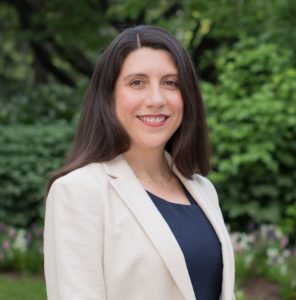 Progressive Voice is a weekly column. The views and opinions expressed in the column are those of the individual authors and do not necessarily reflect the views of their organizations or ARLnow.com.
Progressive Voice is a weekly column. The views and opinions expressed in the column are those of the individual authors and do not necessarily reflect the views of their organizations or ARLnow.com.
By Tannia Talento
How do you achieve social justice, equal access to opportunities for all, and access to the American Dream? If it is achievable anywhere, most of us believe it could be in Arlington.
We all seek to be accepting and not prejudiced.
But let’s think about what we see when we see a police officer. What do we see when we see a Black or Latino male walking down the street? What do we see when we see a person with a disability? What do we see when we see a White person? Depending on the lens you bring to this discussion, whether it is the lens of having a disability, being Latinx, being Black, being an immigrant, or being White, you will likely view each of these people differently. For instance, what I see when I see a police officer, as a Latina woman who grew up in a working-class minority neighborhood, is fear for my well-being, a potential negative disruption to my day and potential harm. What I see when I see a Latino male is my brother, my father, my uncle or my cousins.
I see the world around me with my personal lens created by my life experience. I have had to remove my personal lens to understand that some people might see safety, protection, and help when they see a police officer and understand that some might see a gang member, an undocumented immigrant, or a potential criminal when they see a Latino male.
Consider what your lens is showing you.
We consider affordable housing in Arlington a mechanism for keeping our community socio-economically diverse. This is another area in which we need to consider our lenses to successfully support affordable housing in Arlington.
For instance, do you know what it feels like to have severe limits in living choices? Limits on where you can buy food, how much food you can buy, and the type of food you buy simply based on money. Consider the limits on the location of living accommodations that are strictly based on an affordable grocery store being within walking distance and a strong public transportation system to get you to work.
Under these circumstances, you do not get to truly pick your neighborhood, your school, or your community. Depending on when a unit becomes available, if it has enough rooms at a price you can afford, and if it is close enough to a metro or frequent bus line that starts early and runs late, your home picks you. If you have never experienced this, how would you know that a bus line that runs every hour versus every fifteen minutes is a barrier to something as simple as walking your child to school before work? If you have never experienced this how would you know that affordable housing in sections of North Arlington, while affordable, may not be a choice for you if you do not have a car, because there is no grocery store within walking distance or a transit line with frequent service. If you have never been low-income, these barriers are invisible to you.
Consider what your lens is showing you.
If we want to bring about social justice, ensure equal opportunities for success for all and access to the American Dream, the first step is to acknowledge our personal lens created by our backgrounds and experiences. The next step is to put them aside and learn about the lenses of others. We need to see through the different lenses that exist within our community so that we can see where the invisible barriers are located and help to remove them. This is how we in Arlington should support and assist each other in our pursuit of equity and social justice, inclusivity, and the American Dream.
Tannia has lived in Arlington for 15 years and is currently serving as Vice Chair of the
Arlington County School Board. She is a long-time community activist and an advocate
for equitable access to educational opportunities for all.

